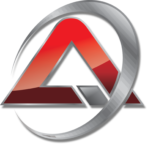Pro AV Catalog
Manufacturers
PRODUCT CATEGORIES
Matching Keywords
Model Numbers

3059 Premiere Pkwy # 400
Duluth, GA 30097
United States
Duluth, GA 30097
United States
Barco
Barco is a global technology leader that develops networked visualization solutions for the entertainment, enterprise and healthcare markets. Its solutions make a visible impact, allowing people to enjoy compelling entertainment experiences; to foster knowledge sharing and smart decision-making in organizations and to help hospitals provide their patients with the best possible healthcare.
Model: RGB laser ODL-721
Laser-lit rear-projection video walls for 24/7 control rooms
Featured Product
A glimpse into Gartner’s crystal ball at the Gartner Symposium/ITxpo
Posted on Thursday, November 26, 2015

Earlier this month, Barco had the pleasure of presenting its corporate solutions at the Gartner Symposium/ITxpo in Barcelona. And a real pleasure it was! Gartner’s five-day flagship event was a great way to get in touch with over 5,500 CIOs and IT leaders. Moreover, it was an amazing opportunity to gain new insights into the future of technology and understand how it is changing the rule book.
The overarching theme of this year’s Gartner ITxpo was how the digital revolution is massively upsetting established business models and forcing – large and small – organizations to adapt. The highlights? Here’s my five personal favorites:
• One of the many aspects of the digital revolution is that the era of ‘bimodal lT’ is upon us. Large enterprises are urged to combine their traditional IT infrastructure, which focuses on stability and scalability, with next-generation applications and services that help them remain agile to meet evolving business needs.
• These new, agile applications have to be particularly intuitive to use, as employees want enterprise software to closely resemble the applications they’re using at home. In addition, they also want to introduce the software and devices they’re used to into the workplace (BYOD) because these are more fun and often user-friendlier than the corporate kit. This ‘consumerization’ also creates a need for consistent user interfaces and interconnectivity between devices!
• Gartner predicts that, within five years, 1 million new devices will come online every hour. Zooming in on that growing number – and diversity – of devices, Gartner talks about ‘the device mesh’: the growing set of endpoints that people use to access applications and information or interact with others. As the device mesh evolves, connection models will have to expand and greater cooperative interaction between devices will emerge.
• The billions of connected devices, things and people generate vast amounts of data. Data, by itself,, however, is not enough to take advantage of the digital business, explained Peter Sondergaard, senior vice president at Gartner in his opening keynote at Gartner ITexpo: “Data is inherently dumb. It doesn’t actually do anything unless you know how to use it; how to act with it.” So what’s the future then? The algorithmic business where algorithms, relationships, interconnections automatically turn insights into action! Examples include Amazon’s recommendation algorithm, for example, which keeps customers engaged and buying or Netflix’s dynamic algorithm that keeps people watching.
• Last but not least, I was struck by the insight that apps are about to be disrupted. Gartner believes that, within five years, we’ll be moving away from using apps to rely on virtual private assistants (VPAs) in the cloud instead. So forget interacting with menus, forms and buttons on a smartphone. VPAs – which will get increasingly smarter – will be pushing the information to us. Google Now, Microsoft's Cortana and Apple's Siri as we know it now are just the beginning …
It’s clear that these developments will impact our businesses in the future. So how does Barco respond to these trends? In tomorrow’s blog, I’ll illustrate how ClickShare can help you prepare for these trends …
Related Products
Model: ClickShare CSC-1
Model: ClickShare CSM-1
You must be logged in to add more than four items to your comparison list.
Register today!
With a free My-iQ account, you'll be able to keep track of the latest updates and
event notifications from your favorite AV
manufacturers, manage your own projects and discover new pro-AV products.
Thank you!
Someone will be in touch with you shortly.
Contact Acuity Audiovisual
close
Request more information from a dealer near you
close
Request more information from a dealer near you

